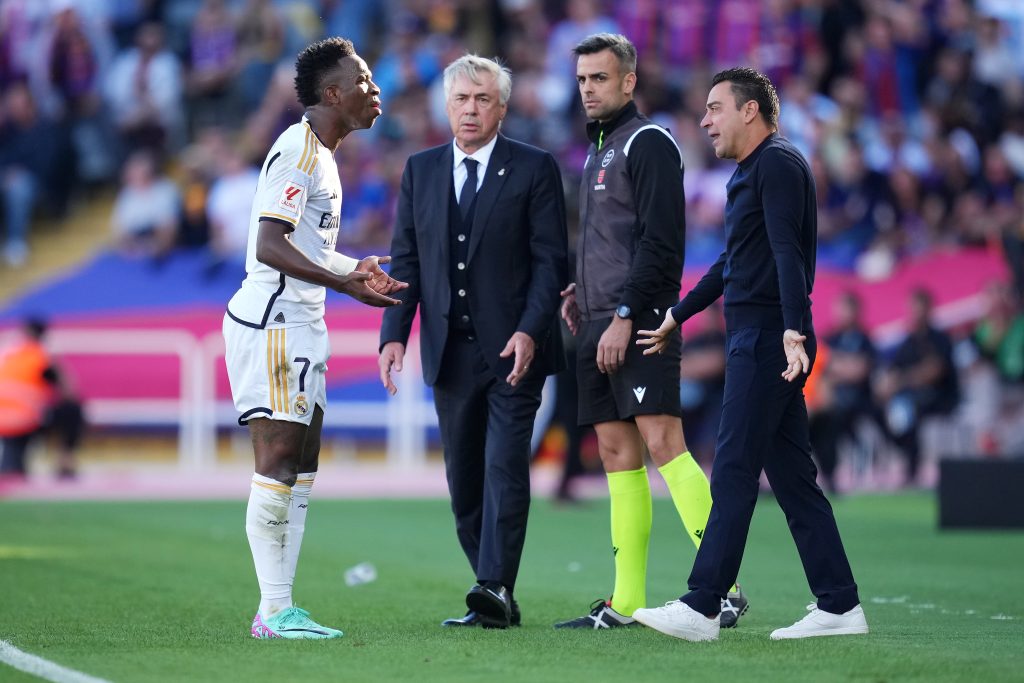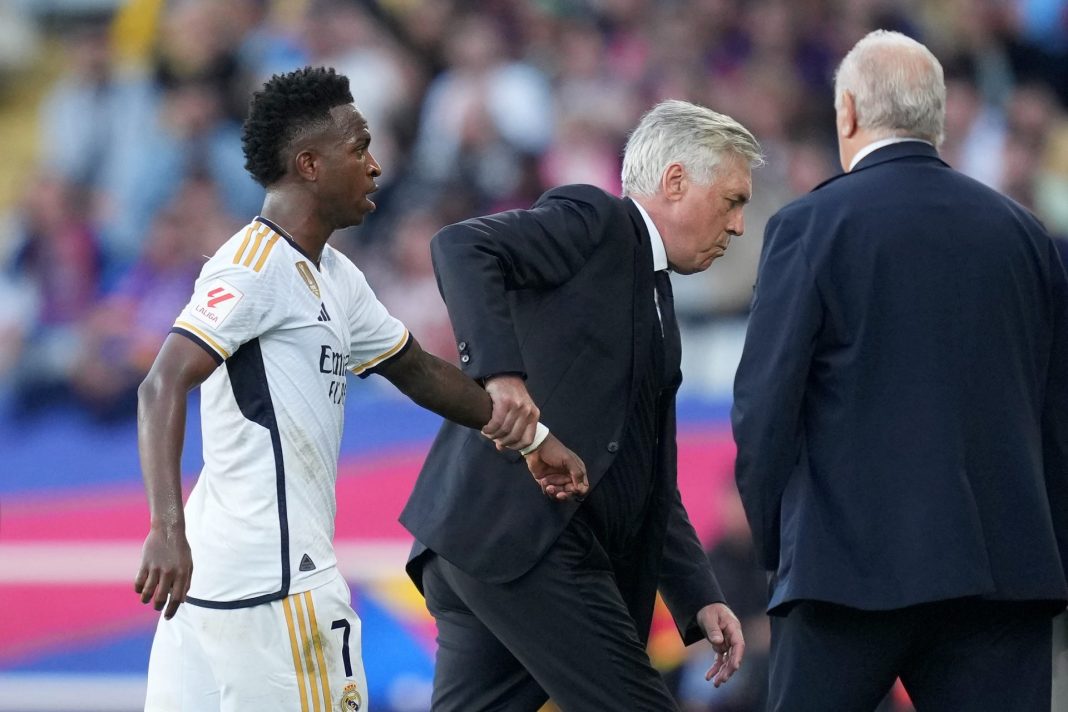Dismissal of Racism Case in Football Sparks Outrage
In a controversial ruling, a judge in Barcelona has dropped the case related to racist abuse directed at Real Madrid’s Vinicius Jr. during the highly-publicized 2023 El Clasico match. This decision has drawn significant backlash not only from Real Madrid but also from various football fans and anti-racism organizations, igniting a heated debate around the handling of racism in sports. The case underscores the urgent need for reform within football’s governing bodies and the judicial system itself regarding how racist incidents are perceived and prosecuted.

The incident occurred on October 28, 2023, during a fiercely contested match between FC Barcelona and Real Madrid at the Estadi Olímpic Lluís Companys. Tensions ran high as both teams fought for dominance, but the atmosphere turned sour when Vinicius was subjected to racial slurs from a section of the crowd. This incident is not merely a reflection of the sport but resonates with broader societal issues of racism that plague various facets of life in Spain and beyond. The implications of such behavior extended beyond the match itself, touching on an urgent national discourse about inclusivity in sports and society.
Police Investigation and Judicial Outcomes
The Catalan police, known as the Mossos d’Esquadra, quickly initiated an investigation following the incident. Utilizing video footage and eyewitness accounts, they successfully identified three individuals involved in the racist chants, one of whom was a minor. The ability to pinpoint these individuals through modern technology seemed to promise a level of accountability; however, the judge presiding over the case concluded that the chants did not meet the legal threshold for a hate crime.
The judge’s decision has left many bewildered and infuriated. According to the judge’s assessment, the insults were dismissed as inconsequential since Vinicius reportedly did not hear them during the match. This rationale has prompted widespread criticism from fans, pundits, and racial justice advocates, as it raises significant questions about accountability for those who perpetrate racist acts, regardless of the immediate impact on the victim. This perspective not only seems to trivialize the severity of the offense but also risks undermining the message that racism has absolutely no place in football or society at large.
Real Madrid’s Stand Against Racism
Real Madrid, alongside Vinicius Jr. and La Liga, has publicly expressed profound dissatisfaction with the ruling. In a statement released shortly after the judgment, the club emphasized their unwavering commitment to combating racism within the sport. They argued that acts of racism are not isolated incidents but rather manifestations of a deeper societal ailment that requires collective action and a robust legal framework. The dismissal of the case is viewed as a significant setback in the ongoing fight against racism in football and beyond.
Even though the judge forwarded the case to the Office for Equal Treatment and Non-Discrimination, Real Madrid remains resolute in its stance against the ruling. The club asserts that the fight against racism isn’t merely about what a player can hear during a match; it fundamentally concerns the values of respect, dignity, and equality that should be upheld in sports. The leadership of Real Madrid has called for more comprehensive mechanisms to effectively address and rigorously penalize racist behavior, urging governing bodies to take a firmer stand.
The Broader Implications of the Ruling
The ruling has triggered a wider discussion about the treatment of racism in sports, especially in a country like Spain, where football is deeply ingrained in national culture. Critics argue that dismissing such cases as inconsequential sets a dangerous precedent. If fans believe they can engage in racist behavior without facing serious consequences, it could embolden similar actions in the future, exacerbating an already critical issue in the sport.
One of the most damaging aspects of this ruling is its potential impact on younger generations. In an era where social media amplifies voices, young fans might interpret leniency towards racist actions as an acceptance of such behavior. This mindset would further entrench racism within sports culture, countering efforts made by clubs and governing bodies that strive for an inclusive environment.
One of the key pieces of evidence that emerged during the investigations was a lip-reading report revealing that one of the insults hurled at Vinicius included a derogatory term. This revelation has been supported by Vinicius himself, who has been vocal about his experiences with racism on the pitch, recounting instances where he has faced similar abuse in various matches. In a twist, however, one of the accused claimed he was merely expressing frustration with the referee, stating he shouted, “a lot of nerve.” The court ultimately sided with the defense, arguing that the comments lacked the necessary severity to harm social harmony, which further aggravated calls for a reevaluation of how these cases are judged.
Community Reactions and Future Actions
The community’s reaction to this ruling has largely been one of outrage and disappointment. Activists, football fans, and commentators have taken to social media platforms to voice their concerns, calling for stricter penalties against racism in football. Many have spotlighted the need for educational programs aimed at combating racism, both inside stadiums and in communities at large. There’s a growing consensus that educational initiatives, coupled with stringent legal actions, hold the potential to address deeply entrenched issues of racism in sports effectively.
In recent weeks, several football clubs have begun to collaborate with organizations specializing in anti-racism efforts to promote inclusivity and tolerance in the sport. These initiatives aim to foster a welcoming environment where fans and players alike can feel safe and respected, regardless of their background. The overarching goal is to ensure that incidents like the one involving Vinicius Jr. are not merely acknowledged but are actively prevented through community engagement and education.
Conclusion: A Call for Change in Football
The dismissal of the case against those who abused Vinicius Jr. serves as a stark reminder of the critical failures in addressing racism in sports. Real Madrid’s commitment to fighting against this injustice reflects a broader call for systemic change in how such incidents are navigated within judicial and sporting frameworks. As players, fans, and clubs unite against racial discrimination, it becomes imperative that legal systems also evolve to provide a robust stance against racism, thereby ensuring that football remains a source of joy, unity, and respect for all.

















